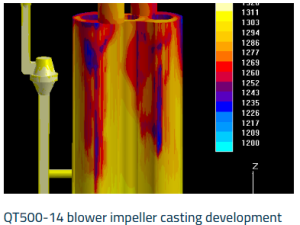Reduced Production Time
Rapid manufacturing has already transformed the way products are made, removing a large proportion of inefficiency in the production process. While traditional manufacturing methods require long set-ups and slow machining processes, newer methods based on technologies like 3D printing and CNC machining are able to be set up in a fraction of time and produce parts extremely rapidly. This is particularly advantageous in industries like automotive and aerospace, where dropping the manufacturing time from weeks down to only a few days can represent significant cost savings and a quicker time to market.
Reduced Costs
As one of the chief benefits of rapid manufacturing, decreased costs have varied implications. Conventional manufacturing involves high tooling and setup costs, and is both time-consuming and expensive. Almost all of these pre-production costs are eliminated with fast manufacturing. For example, manufacturers using 3D printing have seen improved tooling savings of up to 70%. Manufacturing parts as needed also eliminates the need to have huge inventory, which helps to reduce overhead costs.
Flexibility and Scalability
It enables an entirely new level of production flexibility and scalability. Changing a design the traditional way can be expensive and take a long time. Rapid manufacturing, on the other hand, can offer fast and low-cost modifications. Being able to adapt is crucial in a market where consumer demands change and technology moves at breakneck speed. Furthermore, scale is easily addressed as production is adjusted up or down without requiring significant retooling.

Enhanced Product Quality
Shortening the production time Rapid manufacturing will quickly help you to get your invention to production a lot easier and will also upgrade your product meaning higher standards. These advanced manufacturing technologies use to produce parts that are more effective and accurate. 3D printing with laser sintering, for instance, makes it possible to create geometries and resolutions that are unachievable using traditional approaches. This means more accuracy, resulting in higher quality products with better properties that is essential in fields where reliability and precision specifications are crucial.
Environmental Benefits
It also has important ecosystem advantages to have rapid production. Because they build parts layer by layer, they generally create less waste than traditional technologies that cut from a larger block of material to yield the part. For example, you can say, additive manufacturing reduces material waste upto 90% when compared to subtractive techniques. In addition, since parts can be built near or at their source, the greenhouse gases produced from shipping these goods to distant plants, is also eliminated.
Customization and Innovation
Above all, rapid manufacturing enables businesses to provide even more localised and unique levels of customized products, increasing innovation for all. Products can be customized one by one, without long lead times or added expense to customers. This application is especially important for industries such as health care in which individualized implants such as medical devices can be produced quickly to satisfy specific patient requirements. More over, the quick manufacturing flexibility supports continual innovation and aids companies in testing new ideas and designs at low cost risk.
Finally and in general, it said that the benefits of rapid manufacturing are the following: business effectiveness, costs reduction, flexibility, products quality, environmental sustainability, and customization and innovation advancements. The impact rapid manufacturing has on global industries will only expand as technology advances, and as these applications broaden the global manufacturing landscape will shift to keep pace in this evolving economy, to provide organizations the tools they need to compete in a dynamic marketplace.